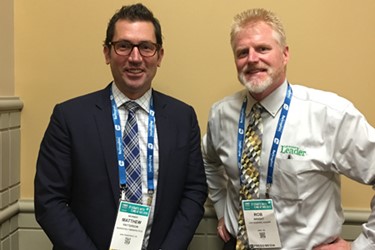The Lonely Role Of CEO
By Rob Wright, Chief Editor, Life Science Leader
Follow Me On Twitter @RfwrightLSL

As the chief editor of Life Science Leader, I have had the pleasure of interviewing a wide range of c-level executives. And while never in my question set, I have found it interesting how during a number of interviews with biopharmaceutical industry CEOs, they will sometimes comment on how lonely the top spot can be. For example, during a recent interview with Matt Patterson, founder and CEO of Audentes Therapeutics (NASDAQ: BOLD, today valued at roughly $1.8 billion and subject of an upcoming feature in Life Science Leader’s October issue), he said he was amazed at how lonely the job can be. “Because even though you feel you’ve got a network of friends and colleagues, you still feel like you’re on an island by yourself and forced to make decisions, while worrying how these could have some sort of negative impact on the future vision you have for the company you want to build. You need the courage to make those decisions, which is difficult when you don’t yet have a team of people around you to be partners in such important moves.” Patterson shares that he found the loneliness aspect not only interesting, but a surprising part of being a founding CEO in those early days. He adds that the loneliness continued until he was able to assemble a leadership team and begin to bring on colleagues that he could work with on the toughest questions when trying to build a business.
The second valuable lesson learned from those early days he says is just finding a way to sleep at night. “Believe it or not, you have to learn to get some sleep, despite constantly living with the stress of trying to figure out how you are going to get through this challenge,” he confides. Questions that plagued Patterson back then included:
- How am I going to convince the VCs to invest in this company?
- How am I going to convince that academic organization to give me a license to the technology when I can’t afford to pay for it?
- Why are they moving so slow on everything, because I need to move fast?
“All of these things are on your mind every night when your head hits the pillow, which makes falling asleep tricky,” he relates. To overcome, Patterson advises finding someone to be able to talk to, which for him came in the form of meeting his future wife, someone with whom he could safely vent. “She’s a wonderful listener, and that’s probably why we’re happily married today,” he states. But the executive notes that this person doesn’t have to be a spouse; they could be anyone who is an important figure in your life.”
As for advice on how to manage stress, Patterson says there is no perfect answer. “If you continue to make progress, it gets a little easier each day, week, and month to sleep through the stress,” he says. “Each milestone —getting seed funding, founding the company, closing the series A, signing a lease on an office, hiring a first employee — will seem like this mini-little step, but it actually ends up being a pretty big step in the psychology of trying to get a company started, and those accomplishments will give you some added degrees of confidence.”
